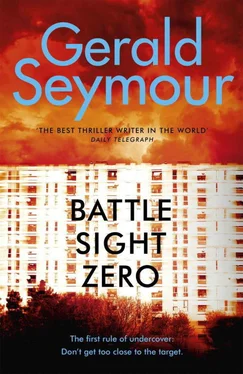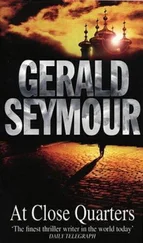The conscript crumpled.
They were on a parade ground at a barracks on the outskirts of a town almost at a direct central point in Ukrainian territory. The conscript had never heard of Pervomaisk astride the Pivdennyi Buh river before the train had brought him here from the east, crushed in a stifling cattle-truck, and had dumped him along with hundreds of other teenage soldiers. From the rough concrete of the parade area they would go on to a flat expanse of open field where crops were growing, and there they would simulate warfare, and they were supposed to use live ammunition. In the distance, in front of them, were plumes of smoke from the tanks as their engines started up and belched out fumes. Although the conscript reeled from the ferocity of the blow, he clung to his rifle. They had been taught from the first day of arriving at the barracks and being issued with a personal weapon that they must guard it with their lives, that it was a betrayal of the Motherland to lose it, treason to throw it away in combat, that it must be cherished and safeguarded. Amongst a welter of force-fed information, was the importance of remembering the serial number stamped on to the pressed steel body of the weapon. They could ignore the first three digits but had to recall the next three, 260, and then shout out the final five, 16751. Each was different, but the conscript knew his, what was personal to him. In a sprawled hand, barely legible, he had written his name, as best as he was able, next to that number, had taken the rifle. They had been taught to clean them, to strip and then reassemble them, to load a magazine, fast, into the slot underneath. He had been surprised at how quickly he had mastered these basic skills, and the use of the fore-sight and rear-sight and the elevation that was set for them at a minimum range: what the instructor called Battle Sight Zero. Along with the other youths, the conscript had worked hard on his rifle, had felt a sense of pride that such a piece of complex machinery had been issued to him. They had slapped and stamped through formal drill, and the sergeant had yelled at them. The conscript was in the front rank. With some confidence, as the drill required, he had slapped the rifle’s wooden stock with his right hand and done it so that the sound echoed away into the air, had done it smartly, as had scores of others. The sergeant had approached him, then had hit him.
The sliver of wood lay in front of him. He bent towards it, the rifle supporting him so that he did not have to kneel. Had he done so he knew it was likely that he’d have been kicked in the stomach or the chest or the head, by the sergeant’s polished boots. He pushed himself upright, then tried to straighten his back. He was accused of an act of vandalism, something that was on the ‘fucking edge’ of sabotage. He had damaged the rifle given him by the state. It was there to see… the piece of wood was five or six centimetres long and there was a raw mark on the stock where it had been. He tried to recall each moment that the rifle had been in his possession since being allocated it in the armoury. He could not remember any moment when he had dropped it, banged it, collided with anything while holding it. Probably it was because the blood had spurted in his face – from embarrassment, from shame, from the blows inflicted on him – that, giving it no thought, the conscript attempted to mitigate his guilt. It was a stammered denial of any guilt.
The sunlight caught the wood on the dull concrete, highlighting the groove from which it had fallen. He heard a tittering around him, alongside and behind. He had done nothing to break the stock of the weapon. The conscript was not yet old enough, experienced in the ways of the army systems, to appreciate that avoiding blame would seldom be successful, but he tried. He had done nothing. His voice was shrill. None of the teenagers who shared the barracks hut with him were prepared to pipe up, in a barely broken voice, that they were ‘pretty certain, almost sure’ that he had not done the damage, and that the fault must have been in the consignment. Nobody supported him, but he said it: not his fault, but somebody else’s.
He was hit again, and harder. He went down. Was hit again, but had time to squirm away as the sergeant’s boot was drawn back – and there was an officer’s voice in the distance. They were called to attention. He stood, brushed the dirt off the front of his uniform and from his knees. The sergeant strode briskly towards the officer, and the conscript was forgotten. He reached out with his own boot and slashed a kick at the splinter from the stock, and caught it hard enough to break it, then stamped on the two pieces. He spat into the cavity, wiped his tunic sleeve across the wet, and was satisfied that the mark was less obvious. He hated the rifle, designated AK-47, Avtomat Kalashnikova , its last five digits of the serial 16751, with the magazine attached to its slot and filled with 7.62 x 39 grain ammunition. Hated it.
They marched off the parade area and into the maize fields and were told to run, and jogged in new attack formations through the sun-blessed crops, and the tanks ahead were beginning to roll forward and there was smoke, and flares arced in the sky, and quite soon the crackle of gunfire surrounded the conscript. He hated his rifle for the beating he had taken from the sergeant, but felt the power of the beast when it thudded against his shoulder, the scar on the stock against his cheek, pricking the skin and making his face bleed.
He charged, as they all did, and felt now that he was indestructible because of the weapon in his fist, hated it, but realised its power, and ran and felt no exhaustion and chased after the tanks. But hated it because of what had been done to him – and had never before felt hatred so strong.
The girl was the last off the train.
She looked around her, scanning for faces that she might recognise, or those of anyone who might indicate they knew her. It was dusk and the rain spat and none of the other passengers getting off at the small station of Dewsbury hung around. The line was the main link between what politicians, local and far away in London, liked to call the ‘twin powerhouses of the north’ Manchester and Leeds. This halt was east of the Pennine spine of hills and wilderness. Its industries had curled over and died, and anyone anxious for work and a distant promise of prosperity took the train out each morning and came back each evening. The girl was a student, second year Social Sciences at Manchester Metropolitan University. She allowed the platform to clear, the passengers either using the exit on that side of the twin tracks or taking the lift up to the bridge that crossed over to the main part of the station, where she was heading and where there were female toilets. This was her home town; she had come for a fleeting visit to her parents. She had been careful on the train, had seen nobody familiar, was satisfied that she was not recognised on the platform. The train had left, the platform was empty, and the lift returned for her alone. She wore jeans with regulation frayed tears at the knees and with the colour washed out of the thighs, and lightweight trainers, and a sweater hanging loose over a T-shirt and an anorak that enveloped her, and her hair straggled out from under a toggle hat. Slung on one shoulder was a rucksack. In the privacy of the lift, she ran her tongue hard over her lips, worked it hard enough to remove most of the thin trace of lipstick. She was ‘Zed’ to her boyfriend, Zeinab to her tutors and to her parents, and was in her 23rd year. There was a sort of deal: she came home regularly and, in return, her mother and father, her uncles and aunts and her cousins, did not come over the moorland to Manchester to visit her. They did not and would not know of the new life enveloping her when she was away from the rigid, devout, disciplined life in the quarter of Dewsbury where she had been reared. She went into the toilet, took a cubicle, locked herself inside.
Читать дальше












